Pancreatitis refers to the painful inflammation of the pancreas (an organ near the stomach and liver that helps with digestion and blood sugar control). The exact cause of pancreatitis in cats is unknown, and the symptoms—abdominal pain, vomiting, and diarrhea—mimic several other gastrointestinal problems. Pancreatitis can be life-threatening, so it's important to bring these symptoms to your veterinarian's attention for an accurate diagnosis and targeted treatment.
Chronic cases can be managed and may require a low-fat diet for life. Untreated, chronic pancreatitis can lead to other diseases like diabetes.
What Is Pancreatitis?
Pancreatitis is a condition in which the pancreas becomes inflamed. This inflammation causes pain and digestive issues in cats.
Pancreatitis can be either as acute or chronic. Acute pancreatitis occurs suddenly and is more often fatal than chronic pancreatitis, which reoccurs (generally in less severe episodes) over months or even years.
Symptoms of Pancreatitis in Cats
Pancreatitis can cause a variety of symptoms due to gastrointestinal disturbance affecting not only the pancreas but also nearby organs such as the stomach, gallbladder, liver, and intestines. Symptoms associated with pancreatitis are often the same as other digestive problems.
Abdominal Pain
If your cat has abdominal or belly pain from pancreatitis, it may cry out, hiss, or try to get away if you try to pick it up. Your cat may also seem to have difficulty getting comfortable when lying down. Your veterinarian can also feel your pet tense up if there is a sensitive or painful spot when feeling the belly.
Vomiting and Diarrhea
A cat may vomit for many reasons and pancreatitis is one of the more serious causes. Vomiting may occur due to abdominal pain or digestive issues that are secondary to the organ's inflammation.
Since pancreatitis affects the pancreas and the pancreas plays an important part in digestion, cats with pancreatitis often experience diarrhea.
Weight Loss
Cats with pancreatitis usually lose weight in response to the other symptoms, such as vomiting, diarrhea, and anorexia.
Dehydration
If a cat with pancreatitis is lethargic, it may not want to drink much water and also have diarrhea. The combination of these two things can quickly lead to dehydration. You can quickly tell if your cat is dehydrated by gently pulling up the skin between its shoulder blades. If it stays "tented" and does not snap back into place, your cat may be dehydrated.
Fever
If there is inflammation in the pancreas, a cat will often have an elevated core body temperature. Though it's best to let your vet take your cat's temperature with a thermometer, you can watch for signs of a fever. Signs of a fever can include lethargy, loss of appetite, dehydration, an elevated heart rate, and breathing that may resemble fast panting.
Anorexia
A cat that doesn't feel well due to abdominal pain and vomiting usually doesn't want to eat very much—or at all. If a cat does not eat for 24 hours, it faces additional health complications, so veterinary attention is needed as soon as possible if a cat refuses food.
Causes of Pancreatitis
Although pancreatitis in other species is fairly well understood, little is known about what causes this relatively rare condition in cats. In some cases, pancreatitis can be linked to a known toxoplasmosis infection in a cat, but most cases have no identifiable cause.
Diagnosing Pancreatitis in Cats
It can be difficult to diagnose a mild episode of pancreatitis in a cat. It is thought that many cats with chronic pancreatitis often go undiagnosed because of the transient nature of the symptoms. During a severe attack, however, pancreatitis may be suspected by a veterinarian and diagnosed with the aid of blood tests, including:
- White blood cell count
- Red blood cell count
- Organ function tests
- Feline pancreatic lipase immunoreactivity test (FPLI)
- X-ray and ultrasound
Treatment
Veterinary treatment is needed if a cat has acute pancreatitis that is causing pain and uncontrollable vomiting and/or diarrhea. To allow the pancreas to rest and heal, your vet may recommend the following treatments:
- IV therapy to replenish lost fluids and nutrients
- Antibiotics and pain medicine to treat possible infections and soothe specific symptoms
- Slow reintroduction of food as a cat starts feeling better
Most cats will be hospitalized for several days while these treatments are administered. After a cat recovers from a pancreatic episode, your vet may recommend feeding a fat-restrictive diet to help prevent the recurrence of inflammation.
If your cat has chronic pancreatitis, flare-ups may be managed with a veterinarian's recommended protocol of symptomatic care, which could include giving anti-emetic or anti-diarrhea medications, liquefied food, or subcutaneous fluids to combat dehydration.
Prognosis for Cats With Pancreatitis
If an acute pancreatitis attack is severe enough, it can be deadly. Chronic pancreatitis flare-ups, unlike acute pancreatitis, are often more manageable. If your cat has previously been diagnosed with pancreatitis, watch for signs of future flares like decreased food intake or stomach upset.
If your cat starts vomiting or having diarrhea, then you should contact your vet immediately to avoid further complications, which may include diabetes mellitus and exocrine pancreatic insufficiency (insufficient synthesis and secretion of digestive enzymes). Both of these diseases can be caused by uncontrolled chronic pancreatitis in cats due to the damage the pancreas incurs from inflammation.
How to Prevent Pancreatitis
Since the exact cause of pancreatitis in cats is still undetermined, there is no definitive way to prevent it. Your vet may suggest a specific diet or supplement that has been shown to support pancreatic health in cats or to keep your cat at an ideal body weight, which is critically important for avoiding many obesity-related conditions.

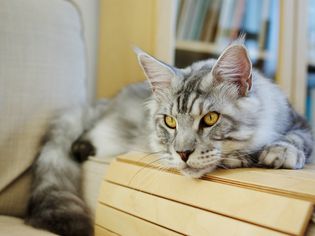
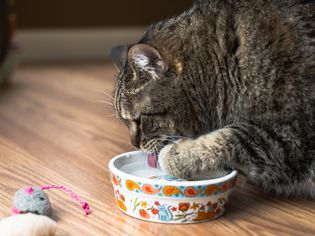
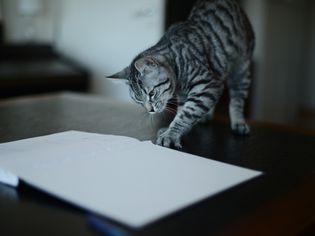
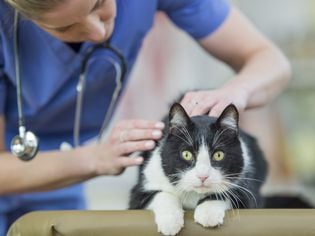
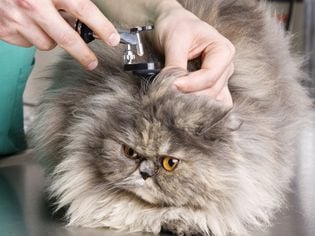
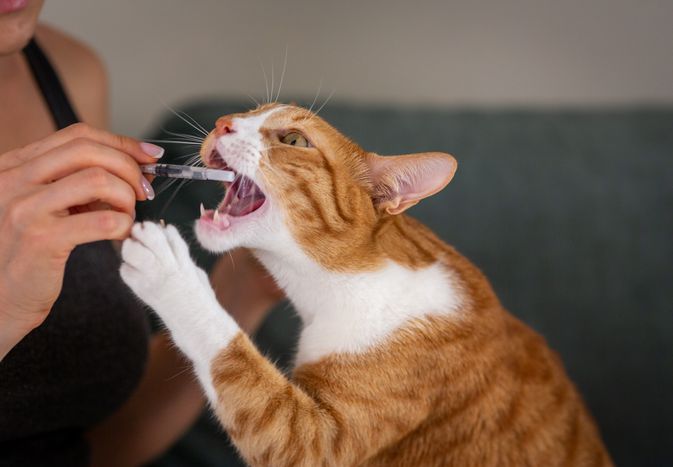
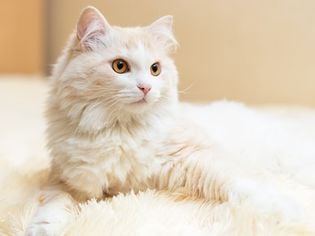
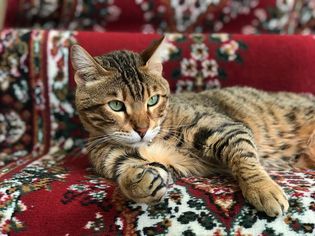
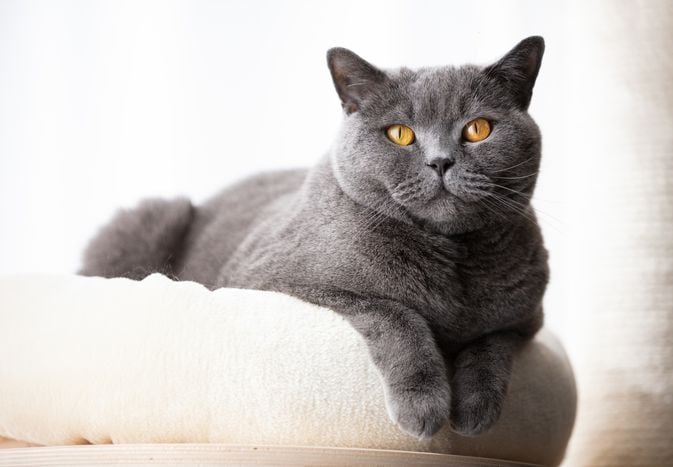
Comments on " Pancreatitis in Cats" :